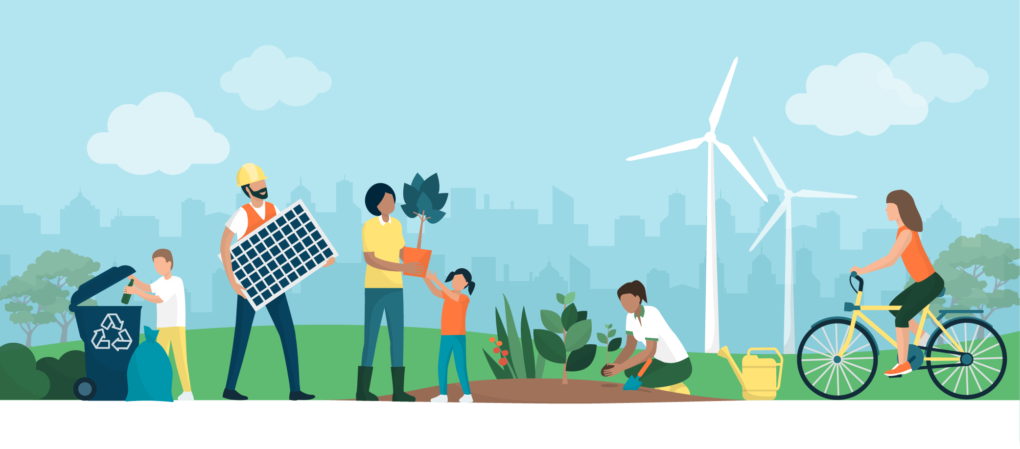
While the concept of corporate sustainability has been a feature of global business for decades, never before has it been a matter of sheer corporate survival. Indeed, in the face of rapid climate change, overpopulation challenges, urbanization and the fierce pace of human development, achieving corporate sustainability has become paramount.
To clarify, Wikipedia defines corporate sustainability as ‘an approach that creates long-term stakeholder value by implementing a business strategy that considers every dimension of how a business operates in the ethical, social, environmental, cultural, and economic spheres.’
Arguably, technology has become a chief enabler for establishing sustainable business practices – and its role and importance will only increase in the next few years. Today, there are several key trends that will undoubtedly shape the way that businesses, governments and even individuals operate on a daily basis…
Deeper insights with big data analytics
According to various reports, 90% of the data in the world has been created in the last two years, and it is projected to increase by 40% annually. Today, a large share of this information is “data exhaust,” or passively collected data deriving from daily interactions with digital products and services such as mobile phones, credit cards, smart devices and social media platforms. Increasingly, this data is the lifeblood of decision-making and the basis for accountability for institutions of every nature. Already, in the private sector, big data analytics is a major feature of operations – with personalised services and predictive analysis being leveraged for marketing, advertising and daily operational management.
Encouragingly, we are already seeing various organisations harnessing the data revolution to implement sustainable business and trade practices. For example, Global Forest Watch, created by the World Resources Institute, leverages satellite technology, crowdsourcing and analytics to provide interactive tools for users to identify deforestation and the destruction of natural habitats. This data is packaged in various formats including ratings and interactive maps.
Last year, the International Trade Centre (ITC) unveiled its Sustainability Map, an online gateway connecting businesses and producers that will ‘help pave the way towards more sustainable trade.’ According to the ITC, the Sustainability Map offers users access to information related to sustainability initiatives and standards, allowing businesses to deploy better sustainability practices in international trade. In addition, the tool enables users, ‘regardless of their position in the local, regional or international value chain,’ to gain a deeper understanding of the sustainability standards that are pertinent to their export markets.
For all the many benefits of the data revolution, however, there is a shadow element in the form of data breaches/leaks, cyber fraud, espionage and more. The scandal involving Facebook and the political data firm Cambridge Analytica – with Facebook disclosing that 87 million users’ data could have been compromised – is a good example of how data can be mismanaged at great cost.
Boosting productivity and efficiency with AI
Artificial Intelligence technology (AI) has been operating on the fringes of business and consumer life for many years – but this has now changed. Today, AI is a central feature of business, and can arguably become a major force for sustainable and efficient business practices. Robots, for example, can power more efficient and smarter production lines.
By placing sensors at every point on production lines, and connecting them to advanced data analytics, there is an opportunity to calibrate robots and to reach new levels of industrial and agricultural productivity. The artificial intelligence company IP Soft, for one, is pioneering innovative applications of AI during production to reduce food waste – such as the use of farming micro-robots that learn to pick only perfectly-ripe produce, leaving everything else to grow.
Unsurprisingly, the use of AI and robotics is predicted to grow exponentially across industries and sectors. Globally, robot imports rose from around 100,000 in 2000 to around 250,000 in 2015, and the International Data Corporation (IDC) expects robotics spending to reach a startling $230.7B in 2021.
Although there are many fears around robots stealing human jobs, some reports have found that AI may actually create more jobs than it’s expected to eliminate. Research firm Gartner has stated that by 2020, AI will generate 2.3 million jobs, exceeding the estimated 1.8 million that it will wipe out.
Blockchain driving green solutions
While much of the hype around blockchain technology has been about cryptocurrencies, blockchain is already being identified as a potential tool to drive sustainability and green business practices. Investopedia defines blockchain as a ‘digitized, decentralized, public ledger of all cryptocurrency transactions. Constantly growing as ‘completed’ blocks (the most recent transactions) are recorded and added to it in chronological order, it allows market participants to keep track of digital currency transactions without central recordkeeping.’
Already, new blockchain solutions are making clean, decentralized energy much more accessible, affordable and easier to adopt. For example, the technology can enable neighbours to trade clean energy with each other, without needing to go through a utility provider. Some experts now posit that it can be harnessed to establish systems that encourage people and businesses to conserve energy. Indeed, there are already benefits for eco-conscious individuals and their (digital) wallets, with new blockchain systems that reward those who take action against climate change.
One interesting example is a platform called Sun Exchange, which uses blockchain to power a global marketplace whereby members earn bitcoin for bringing solar energy to the developing world. Using their platform, almost anyone with $10 and an internet connection can buy fractions of solar panels called ‘cells’ and rent them out to be installed on the empty roofs of schools, hospitals, communities and businesses in developing countries.
For business leaders, managers, public sector decision-makers and individuals, technology is now opening up countless opportunities to live, trade and profit from a more sustainable approach…



